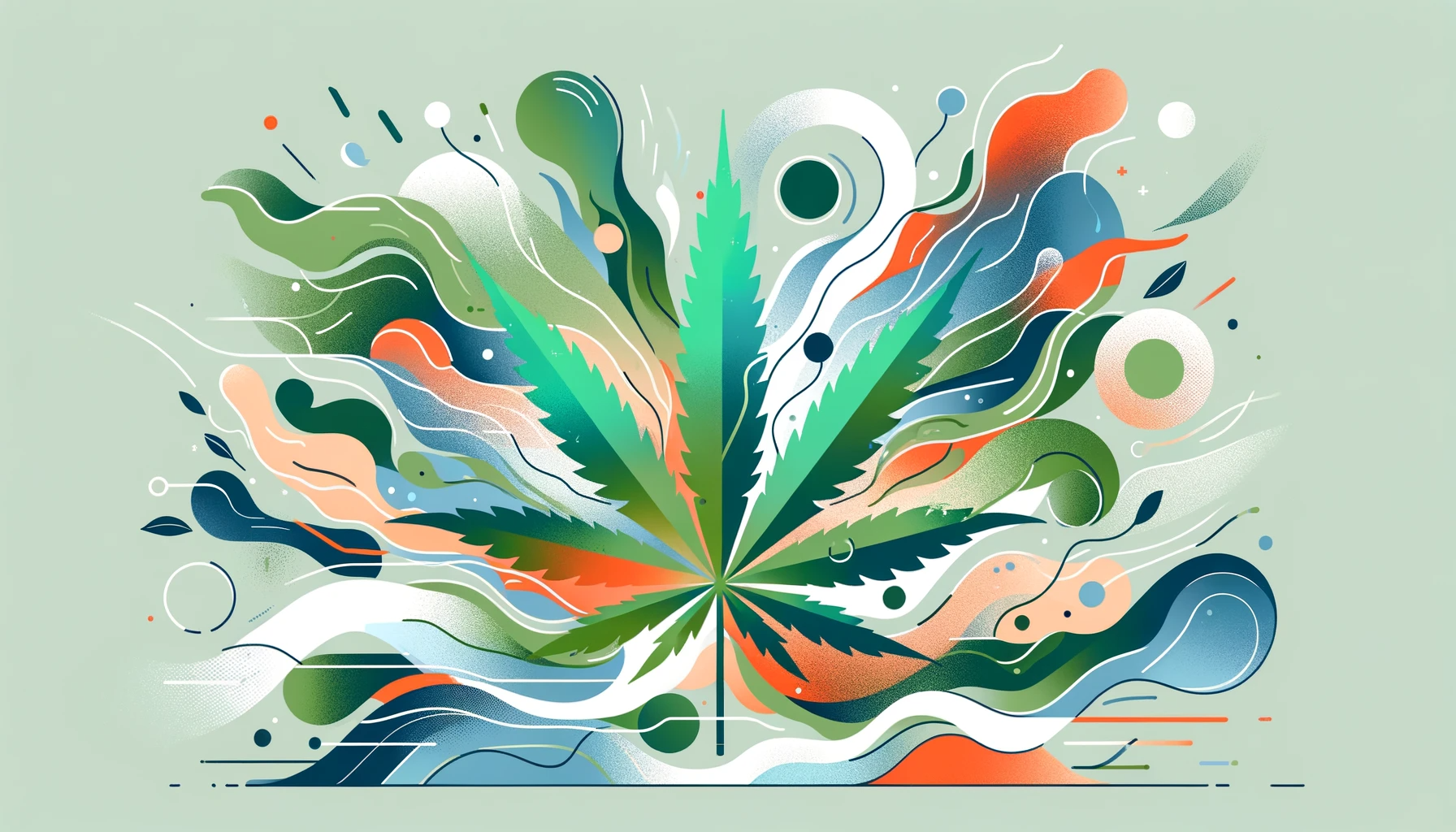If you’re wondering what THC is, you’ve come to the right place. THC is a cannabinoid found in the cannabis plant, and it’s responsible for the mind-altering effects that often accompany marijuana use.
THC can help manage a variety of symptoms and conditions, however, there are also some possible risks associated with marijuana use. In this post, we’ll discuss everything you’ve ever wanted to know about THC. From its origins and effects to its legality on federal and state levels, we’ve got all of your questions covered. Read on to learn more about this cannabinoid and how to enjoy its benefits safely.
THC Overview
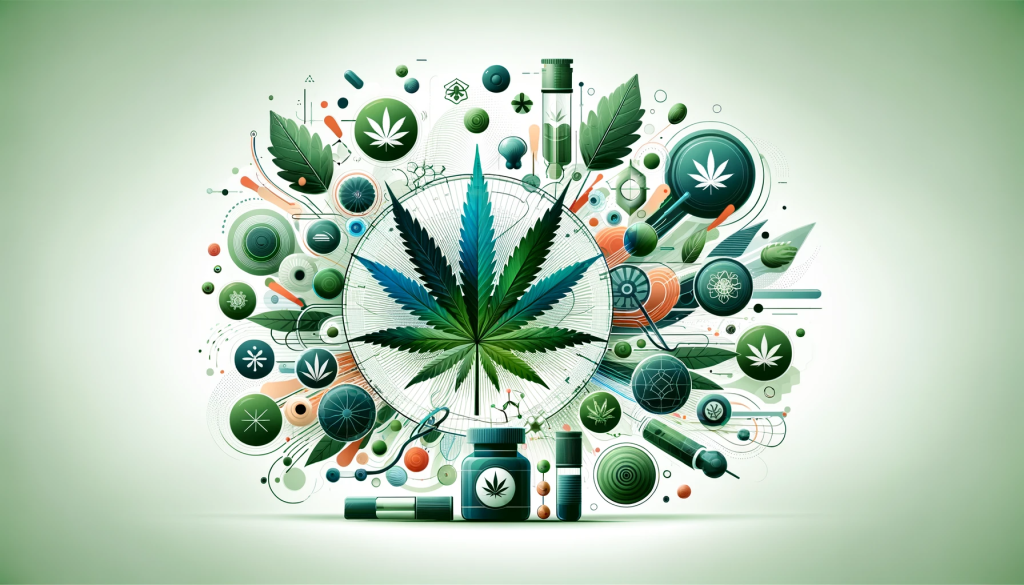
THC is an active ingredient derived from cannabis plants. It’s found in many marijuana products and cannabis-derived products, and it’s known for producing psychoactive effects.
Discovery and Properties
Tetrahydrocannabinol, better known as THC, is the main psychoactive component of the marijuana plant. It was first discovered by researchers in 1964 and is one of over 480 naturally occurring constituents found in the cannabis plant.
THC is an oily, crystalline substance that begins to boil at temperatures around 311 degrees Fahrenheit and vaporizes shortly thereafter. It absorbs directly into the bloodstream from inhaled smoke or slowly through digestion if taken orally. It has a high lipid solubility, causing it to quickly absorb and accumulate in the body’s fat tissue.
Interactions With the Body
THC binds with specific brain cell receptors, producing intoxicating effects as well as possible medical benefits when used in appropriate doses. As the main psychoactive component of marijuana, it’s responsible for producing the mind-altering effects often associated with cannabis use, such as altered perceptions, euphoria, or feelings of relaxation. However, care should be taken to avoid overuse or abuse, which can result in adverse reactions such as anxiety, paranoia, and delusions.
Extraction and Processing
The chemical structure of THC makes it bind very specifically to cannabinoid receptors that are present in the brain and throughout other parts of the body. It can be extracted from several species of cannabis plants including cannabis sativa, cannabis indica, and hybrid variations of both species.
THC can be converted into an oil form by processing either dried flowers or plant material using butane extraction methods or other solvents like alcohol or carbon dioxide extraction processes. This creates liquid concentrates known as Butane Hash Oil (BHO), shatter wax, buds, vapes, etc., which can contain THC concentrations up to 90 percent, depending on purity level.
Comparison With CBD
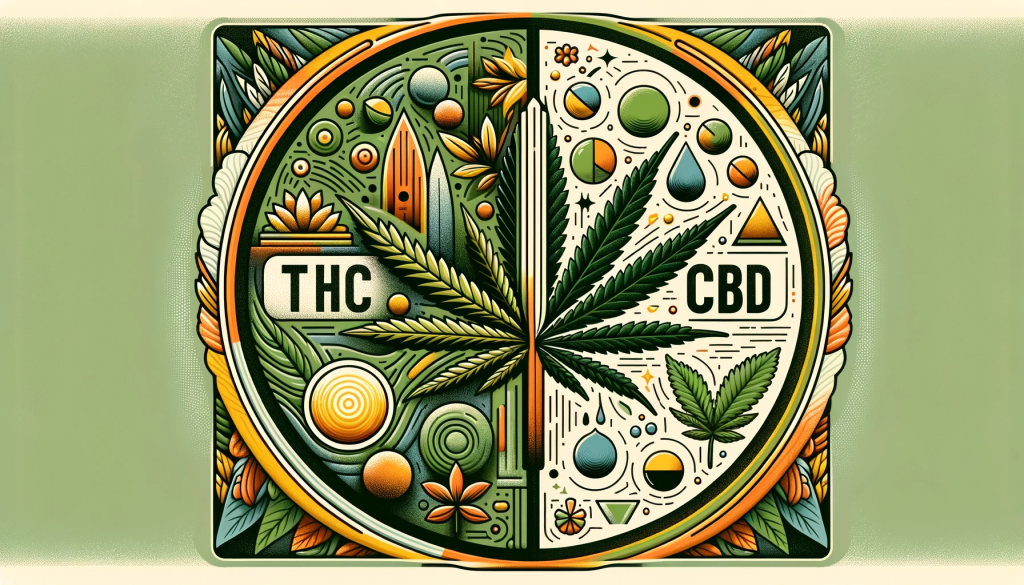
While THC and CBD are both cannabinoids found in the cannabis plant, there are several notable differences between the two, particularly regarding their psychoactive effects, potential medical benefits, and detectability by drug tests.
Psychoactive Effects
THC is the main psychoactive component of the cannabis plant, and it’s responsible for the mind-altering effects that occur when you smoke marijuana or use cannabis products. CBD, on the other hand, doesn’t have any psychoactive properties.
Potential Medical Benefits
THC offers a range of potential health effects. Medical cannabis can help reduce nausea and vomiting, especially chemotherapy-induced nausea and vomiting. It has the potential to increase appetite, particularly in people who have cancer or AIDS. Marijuana use can also help alleviate pain, and it has anti-inflammatory effects, making it helpful for those who suffer from severe forms of arthritis.
CBD has its own set of potential positive health effects. It may lessen and alleviate symptoms associated with mental illness and psychiatric disorders such as depression and anxiety. Additionally, it can help with symptom management for a variety of mental and medical conditions. According to Forbes Health, CBD can be used to relieve symptoms of post-traumatic stress disorder (PTSD), opioid abuse, diabetic complications, amyotrophic lateral sclerosis (ALS), and epilepsy.
Detectability
THC is highly detectable and will usually show up on a drug test. Unlike other substances, even very little THC appears on most drug tests. CBD, on the other hand, won’t show up on a drug test unless the CBD product you’ve used also contains THC.
Effects of THC on the Body
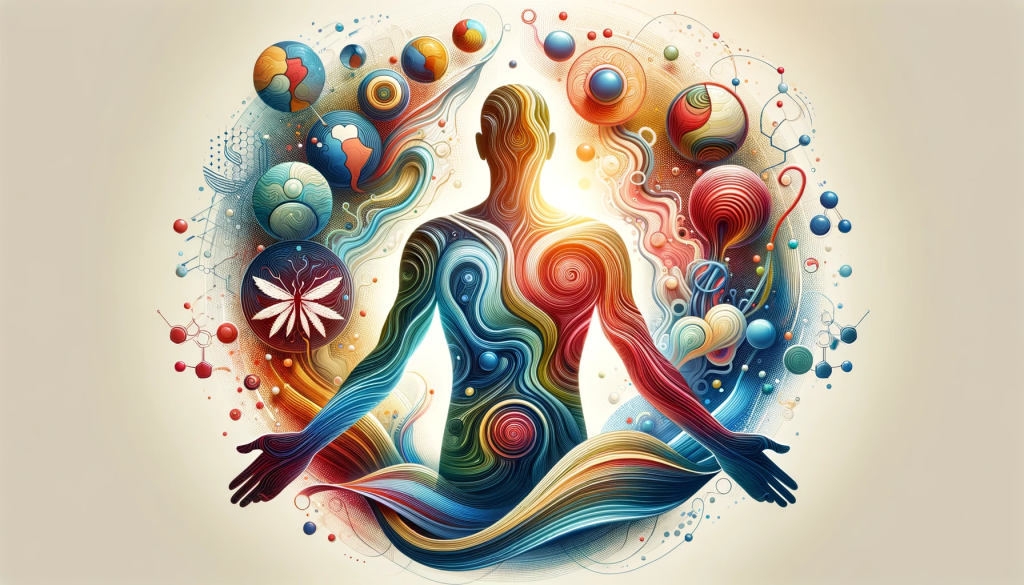
THC is known to produce psychoactive and intoxicating effects when it binds to the cannabinoid receptors throughout the body. Below are some of the possible effects you may experience when using THC.
Psychoactive Effects
When introduced into the bloodstream and brain, THC interacts with endocannabinoid receptors to produce an array of sensations that can range from relaxation to euphoria to anxiety. This “high” feeling can include changes in perception, such as altered time perception and increased focus or disorientation. These effects are why people use marijuana recreationally, but they can also occur when using medical marijuana for pain relief or to treat other conditions. THC can cause adverse reactions if taken in high doses or by inexperienced users.
Intoxicating Effects
Consuming high doses of THC can result in dysphoria or exaggerated anxiety combined with decreased coordination and judgment. Short-term users might experience confusion, memory impairment, difficulty concentrating, altered problem-solving skills, and impaired short-term memory loss that reverses within two days, depending on usage levels over time.
Potential Health Benefits
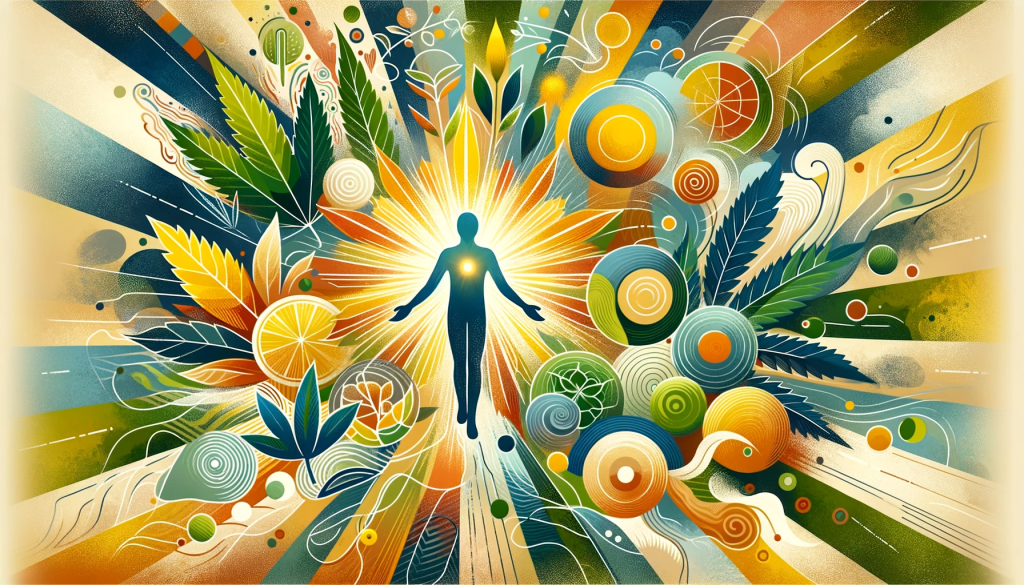
Research indicates that THC may provide a range of health benefits, such as pain relief, appetite stimulation, and anti-inflammatory properties. Read on for an in-depth look at the potential therapeutic uses of THC.
Pain Relief
According to some experiments and studies, THC has the potential to reduce pain by interacting with receptors located in the peripheral nerves, which detect pain. By interfering with and blocking the brain’s pain signals, THC can be a powerful ally for those who suffer from cancer, arthritis, and other pain-causing conditions.
Appetite Stimulation
THC has been known to interact with various pathways in the brain related to hunger. By impacting these pathways, THC is thought to help stimulate appetite by increasing food’s appeal via the senses of smell and taste. This leads to a state of increased craving for food, colloquially known as “the munchies.” Aside from simply stimulating one’s desire for more food, THC may actually increase metabolism and digestion by regulating hormones associated with hunger and satiation—further promoting the user’s desire and ability to eat and digest more efficiently.
As a result, THC can offer potential long-term health benefits such as improved body weight regulation, blood sugar control, lower cholesterol levels, and reduced insulin resistance. It can also increase appetite in those suffering from cancer or AIDS, and many cancer patients find cannabis use a helpful way to treat nausea and reduce vomiting.
Anti-Inflammatory Properties
THC has been found to have beneficial anti-inflammatory properties that may be useful in treating a range of conditions from arthritis to skin irritation. Research suggests it works by interacting with the body’s endocannabinoid system, which is involved in modulating inflammation. THC reduces localized swelling and other inflammatory processes in different parts of the body, mainly due to its ability to activate cannabinoid receptors located throughout the nervous system. This means it can help reduce symptoms associated with diseases such as osteoarthritis and psoriasis.
In addition, while its exact mechanism is still being explored, there appears to be some evidence indicating that THC may also offer relief for those dealing with migraine headaches or Crohn’s disease: two conditions associated with chronic inflammation and pain. As a result, it’s often used in place of or as a supplement to prescription medication and other drugs for alleviating the symptoms of various medical and mental health conditions.
Possible Side Effects of THC
Now that we’ve discussed the possible health benefits of marijuana use, it’s important to note that there are also some potential unwanted mental and physical effects associated with THC.
Impaired Motor Skills
THC use can impair motor skills, resulting in an inability to safely carry out tasks requiring balance, coordination, or reaction time such as operating a vehicle, playing sports, or using handheld tools. THC affects judgment and decision-making, which leads to slower response times, thus increasing the chances of an accident occurring due to compromised reflexes.
Moreover, THC may cause swaying when walking or poor muscle control that results in dropping objects or stumbling on everyday items such as furniture edges. Due to these significant risks involving both physical safety and public health implications, cannabis products are heavily regulated throughout most states, even if they only contain trace amounts of THC.
Memory and Cognitive Impairment
THC is known to affect memory and cognitive function. Studies have found that THC can significantly impair short-term memory, attention span, and decision-making abilities, even after all the effects of intoxication have worn off. THC can interfere with the functions of the hippocampus and the orbitofrontal cortex—the parts of the brain responsible for memory and focus—resulting in cognitive delay and impairment.
Potential for Addiction
Unlike other cannabinoids such as CBD, THC is known to produce an effect on the brain that can lead to marijuana use disorders in some individuals. The primary cause of this is a chemical change, known as tolerance, that happens with regular use.
When a user builds up a tolerance to THC (or other drugs), they need more of it over time to achieve the desired effects because their body has adapted and become used to higher doses. Excessive use, prolonged use, or THC drug abuse can cause some users to develop marijuana use disorder, which is a type of addiction. Withdrawal from THC use can also cause symptoms such as insomnia, anxiety, irritability, and drug/alcohol cravings.
Addiction and withdrawal aren’t limited to recreational users. According to a study conducted by the University of Michigan Addiction Center, more than half of those who use medical marijuana to manage pain experience several withdrawal symptoms between uses.
Other Possible Side Effects
There is a wide range of additional physical and mental side effects one may experience after using a drug comprised of THC. Some of these potential effects include:
- Impaired vascular endothelial function
- Temporary increase in heart rate
- Respiratory irritation (when inhaled)
- Mood changes
- Paranoia
- Delusions (with higher doses)
- Hallucinations (with higher doses)
- Difficulty with problem-solving and thought processes
Legality of THC: Federal vs. State
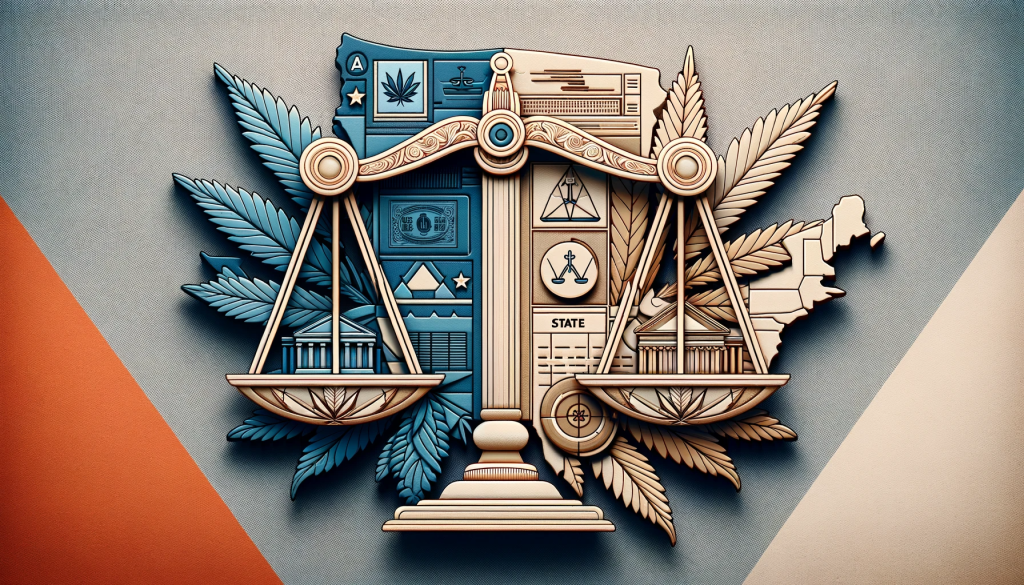
Laws around THC use vary widely depending on federal, state, and local regulations. These laws change frequently, so it’s important to stay abreast of changes to ensure you’re acting within the limits of the law.
Legal Status
While the U.S. Department of Health and Human Services is attempting to have marijuana reclassified as a Schedule III substance, according to current federal law, THC is classified as a Schedule I drug. Products containing THC are considered controlled substances with a high potential for abuse and no accepted medical uses. On a state level, the legality of THC varies. THC is legal for medical use in some states, for recreational use in others, and for both medical and recreational use in select states.
Regulations
The production, distribution, and possession of THC are illegal according to federal law and are subject to criminal prosecution through the Drug Enforcement Administration. While the Drug Enforcement Administration can take legal action against anyone who produces, sells, or has possession of products containing THC, federal law enforcement is often lax in states where THC use is legal. State regulations regarding THC vary from one state to another. States where THC is legal have their own systems for regulating production, distribution, and use.
Implications for Users and Shoppers
Despite the federal classification of THC as an illegal, Schedule 1 drug, THC products are widely available in many parts of the United States. However, users and shoppers run the risk of federal prosecution, particularly if they cross state lines with THC products. Users and shoppers in states where THC is legal face fewer risks, however, they must still comply with state regulations regarding age, possession limits, and where/how THC can be used.
In summary, federal and state laws regarding THC often conflict, leaving users and shoppers in a legal gray area. While the federal government technically prohibits THC, enforcement is often lax, especially in states where THC use is legal. However, users and shoppers should be aware of the potential legal risks and should always comply with applicable state laws.
Medical vs. Recreational Use
Medical marijuana is used to treat symptoms of a variety of medical conditions such as pain and inflammation. THC can be effective in relieving symptoms associated with ailments such as chronic pain, glaucoma, multiple sclerosis, and HIV-related muscle spasms. In addition to possible benefits from the medical use of THC products, like creams and tinctures, that are absorbed through the skin or consumed orally, there’s also potential benefit from smoking or vaping cannabis flower, specifically for patients whose conditions don’t respond well to other medications and methods.
Recreational marijuana refers to the use of any form of natural compound that contains THC primarily for leisure purposes. Most commonly, this includes smoking or vaping loose bud flowers rich in THC, which can impart a powerful psychoactive effect and produce feelings of happiness and relaxation.
Potential Dangers
The risks of adverse reactions or addiction shouldn’t be taken lightly when considering the use of THC, even if used medicinally.
Potential for Exposure in Children and Pets
THC can be particularly dangerous for children and pets to come into contact with, even if they’re not directly consuming it. When left in an accessible area, both adults and kids alike can accidentally absorb THC from inhalation or touching the substance.
Pets may inadvertently ingest products that contain high doses of THC. Symptoms of exposure include sluggishness, nausea, coordination problems, breathing difficulties, or restlessness in the case of pets, as well as dilated pupils and balance issues for young humans.
Additionally, large doses or prolonged use could result in heightened anxiety levels or potential long-term damage such as cognitive impairment, depending on age. For this reason, it’s important to always store substances like THC-containing products, CBD oils, and other products containing cannabinoids out of reach and sight of children and animals.
Risk of Adverse Reactions or Addiction
When using THC, it’s important to be aware of potential adverse reactions and the risks associated with addiction. The use of THC can lead to impairments in motor skills and cognitive abilities, including memory problems, confusion, disorientation, and alterations in perception.
Regular consumption of THC increases the risk of developing a dependency due to changes that occur in the brain as a result of abuse or long-term use. Addiction occurs when someone compulsively seeks out marijuana or cannabis products containing THC, despite any adverse effects on their lives caused by its use.
While research into the long-term effects of cannabis is ongoing, effects reported by those who have experienced addiction include physical withdrawal symptoms such as chills and headaches when not using or reduced craving control leading to excessive drug-taking behaviors.
Other Forms of THC to Explore
FAQ
Can you get high from secondhand marijuana smoke?
According to some studies, it’s possible to experience psychoactive effects after marijuana secondhand smoke exposure. This is colloquially known as a “contact high.”
Are there health risks associated with exposure to secondhand marijuana smoke?
More research is needed on this topic. However, results of a study conducted in 2016 suggest that exposure to secondhand marijuana smoke can have harmful effects including impaired blood vessel function and other negative impacts on the cardiovascular and respiratory systems.
Is marijuana addictive?
Prolonged or excessive THC drug use has the potential to cause marijuana use disorder. As with other types of substance abuse, those who are addicted to THC build up a tolerance to it over time and require more and more of it to achieve the desired effects, leading to drug abuse. If you’re struggling with addiction, there are many organizations—including the National Institute on Drug Abuse—that can provide more information and offer assistance.
Are synthetic cannabinoids safe?
Synthetic formulations of THC and other cannabinoids can have possible benefits. However, depending on how and where these substances are created, they can also be dangerous. These products consist of synthetic cannabinoid agonists mixed with various herbs to mimic the effects of cannabis. Lab-created cannabinoids that aren’t legally regulated are appealing to many because they’re typically cheaper, easier to access, and less likely to be detected by a drug test. More research is needed, however, ongoing research and studies conducted by the National Institute on Drug Abuse suggest an increased risk of negative, potentially fatal health effects with the use of illegal synthetic cannabinoids.
How is THC taken?
There are several different ways to use or consume THC. In addition to inhalation through smoking or vaping, oral THC can be taken in the form of tinctures, oils, and edibles. Oral administration through tinctures and oils brings on the effects of THC faster than other oral administration methods such as gummies. Additionally, THC can be found in some topical creams and ointments, which are often used to treat localized pain.
Is THC FDA-approved?
While many users experience a wide array of health benefits from using products containing THC, this cannabinoid isn’t FDA-approved. The same is true of products containing CBD.
Conclusion
The use of THC comes with a range of potential risks and benefits. While it demonstrates some promising medicinal effects, these can be eclipsed by its negative effects, such as dangerous behaviors and impaired judgment. Therefore, it’s important to be educated about the potential uses, regulations, and safety concerning THC use, even for medical purposes. Individuals should consult their healthcare provider before using any type of cannabis product containing THC.
Furthermore, states differ on whether recreational and medical marijuana is legal; so it’s even more important to stay informed by checking local laws and regulations before use. When enjoying the benefits of THC, it’s essential to use it safely and in moderation.
